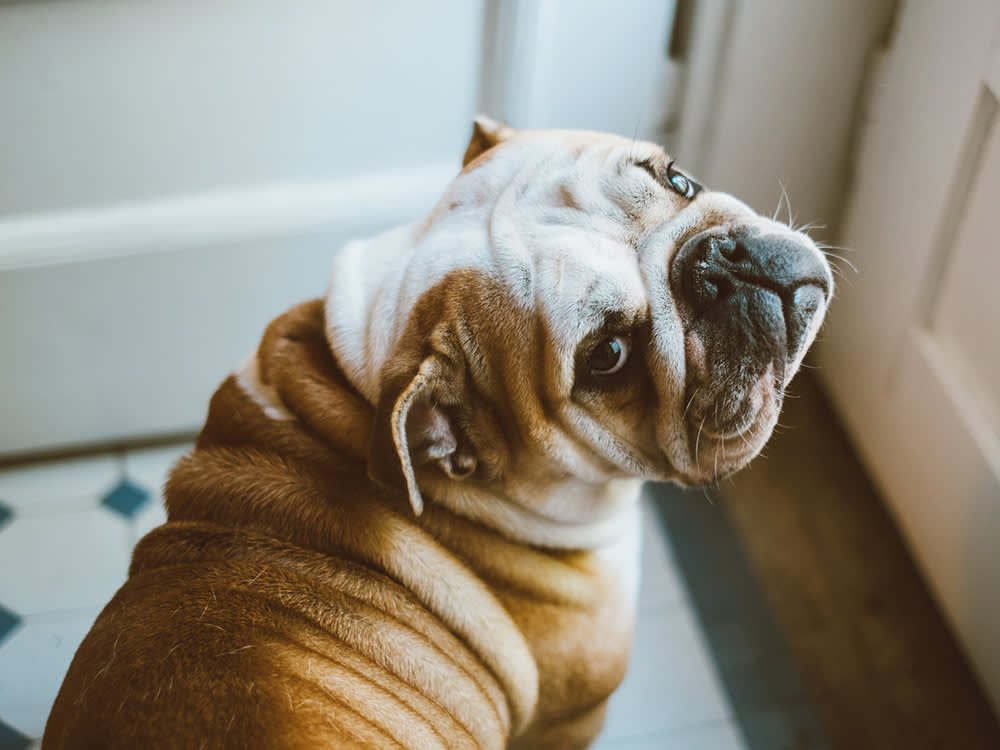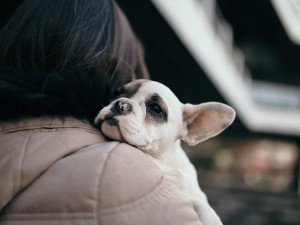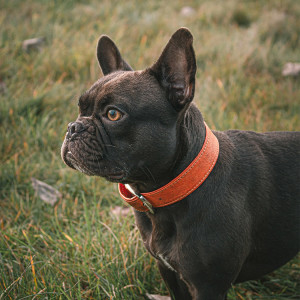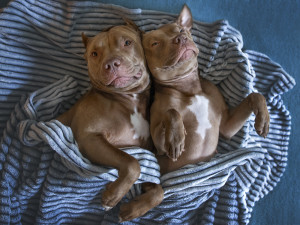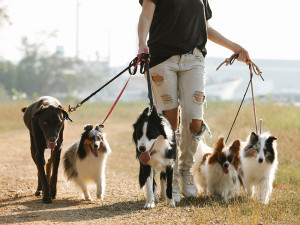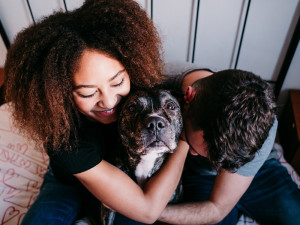Get Shorty: All You Need to Know About Bulldogs
So chill! So wrinkly! So allergic!
I have always been a dog person, but I became a Bulldog person. I grew up with Huskies and Border Collies — big, energetic dogs who needed tasks and a lot of stimulation. But that was in suburban California. From the time I was a kid, I knew I wanted to live in cities, and part of that adult life fantasy was a dog of my own — it just wasn’t clear to me what sort of dog.
I spent my senior year of college studying in Paris. The cliché vignette of a Parisian nursing a drink on a café terrace with a dog by their side turned out to be true. Since I couldn’t get a dog while studying abroad, I spent a lot of time mooning over French dogs. One breed in particular seemed to fit in with the city lifestyle; English Bulldogs were everywhere in Paris. They had squishy faces, were friendly to everyone, and seemed at ease with the exercise of accompanying their owners on errands around the neighborhood. That was it: I wanted a Bulldog.
A couple of months after I returned to the States, I got an English and American Bulldog mix, Chauncy. I regrettably did no research on the breed, but I lucked out. He was fairly healthy and lived to the ripe old age of 16. Less than a year after he passed, I adopted a petit, one-year-old white English Bulldog with brown and brindle markings from BARCopens in new tab, a shelter in Brooklyn. She had been neglected, had never lived inside a home, had pneumonia and mange. I named her Joan.
To say that Joan is my favorite being in the world is an understatement. Every day as I clean her paws and wrinkles, I tell her that she is loved not because she’s so beautiful but because she has a good personality. And I mean it! She is cute in all the smushy faced ways but she’s also a friend to everyone she encounters on the street, patient with children, happy to hang out at my feet. She is basically me in dog form. She is my muse.
How much do you spend on your pet per year?
She’s also stubborn and prone to following me around my apartment, including into the bathroom. She’ll wake me up at 6 a.m. because she wants to eat, then immediately go back to sleep for three hours while I’m wide awake. I have to wash her with a special shampoo for her sensitive skin, clean between her wrinkles, monitor if she’s licking her paws for potential allergies, and I’ve spent a ridiculous amount of money on vet bills for a recurring UTI. (Pet insurance is essential if you want a brachycephalic dog!)
This is all normal, maybe even a little low maintenance, for a Bulldog. My vet, Dr. Taylor Truitt, at The Vet Setopens in new tab in Brooklyn, is wonderful with all animals but also specializes in Bulldogs (and has a Frenchie herself). She likes to say that the cost of acquiring one is the cheapest part of Bulldog ownership. “They are not for everybody. Straight up: no. If you want an easy, low-maintenance dog with limited health problems, a Bulldog is absolutely not the dog for you,” she says. “[Breeders] have bred a congenital defect into these dogs. It’s what makes them cute — they’re short and smushy and friendly — but they’re congenital mutants.”
As I talk to Dr. Truitt, Joan is snoring — a sound that vacillates between a gentle purr and something like a chainsaw, which prompts the vet to tell me that she probably needs to have palate surgery soon. I am also biding my time until I have to get her a dog stroller for any walks longer than a few minutes. And I’ll need a carrier for when she’s no longer able to climb the stairs of our fourth-floor walk-up. “It’s not if but what your Bulldog’s issue will be: respiratory, orthopedic, hyperthermia, overheating, allergies, allergies, allergies!” says Dr. Truitt. They can also be hard to housebreak, are prone to many kinds of cancer, and have short lifespans — often only just making it to the double-digits.
Dr. Truitt is saying all of this with a great deal of (tough) love. Neither of us would discourage anyone from getting a Bulldog. I mean, they’re good family dogs, have tons of personality, and are the chillest of the chill. People who say they don’t like dogs often love Bulldogs. But parenting one is a commitment that needs to be made with a lot of information. And if your heart is set on one, adopt one. In the age of social media, inhumane puppy mills can be made to look legit. Many licensed breeders are even doing so irresponsibly for size (miniature bulldogs abound online) or color (blue or silver) — basically nothing for the betterment the breed. I recommend checking out one of the many regional Bulldog-specific rescues as a lot of purebreds end up in shelters and need good homes.
Because how can I begrudge anyone the immense joy that I (and anyone who follows me on Instagram) get from Joan — wrinkles and snoring and all?
